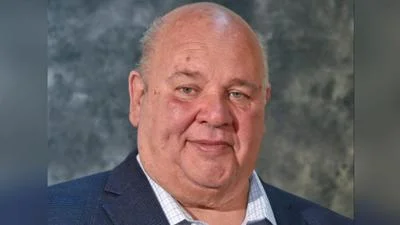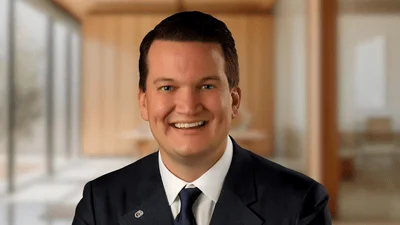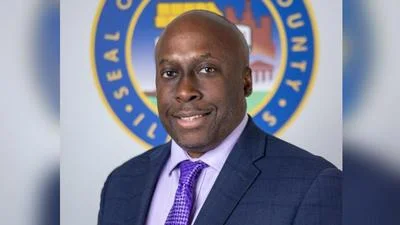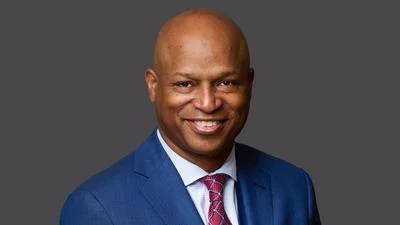VA to honor Adler military psychology graduate for research on homeless veterans | adler.edu
VA to honor Adler military psychology graduate for research on homeless veterans | adler.edu
VA to honor Adler military psychology graduate for research on homeless veterans
Although married to a military veteran, Naiomi Rivera-Rivera says she can admit she had a giant blind spot when it came to the veteran community.
“In my ignorance, I thought homelessness was not something that happened to those who served,” she said. “Then I met a homeless coordinator who worked with veterans, and it all clicked. I realized that those homeless on the streets of Puerto Rico could be veterans like my husband.”
It’s one of the reasons why, as a 2015 graduate of Adler University Online Campus’ Master of Arts in Psychology: Specialization in Military Psychology program, she proposed to examine the psychosocial and military characteristics that play a role in homelessness among veterans in the Caribbean region for her capstone project. By doing so, she might be able to come up with solutions.
Since then, that capstone proposal — titled “Identification of Homeless Predictors in Veterans Residing in Puerto Rico” — has spawned two published peer-reviewed studies: “Homeless Veterans in the Caribbean: Profile and Housing Failure” and “Caribbean Homeless Women Veterans: Military and Psychosocial Characteristics and the Association of VA Service-connected Disabilities.”
And in May, Veteran Affairs will recognize her work as the research that showed the most significant impact on clinical care at the VA Caribbean Healthcare System (VACHS) during a graduation ceremony for its Introductory Research Program.
“Homelessness remains a vexing problem for the VA, and Naiomi’s novel study has made a difference,” said Barton Buechner, Ph.D., interim director of the Military Psychology Master of Arts program, who encouraged Rivera-Rivera to turn her proposal into reality.
“When I learned about the award, I just took a deep breath,” said Rivera-Rivera, who is now pursuing a doctorate in clinical psychology at Albizu University in San Juan, Puerto Rico. “And I said to myself, ‘The journey was all worth it.’”
‘I’m a Caribbean girl’
Rivera-Rivera’s journey to pursue military psychology began when she was pursuing her bachelor’s degree at the University of Puerto Rico, Rio Piedras Campus, where she and her future husband — formerly middle school friends — became a couple.
“We were just friends. It wasn’t until college that we started dating,” she said. “Then he enlisted in the military and was deployed to Afghanistan in 2011.”
When he returned, they got married.
“It was clear his mental health was impacted by his experience in Afghanistan,” Rivera-Rivera said. “I knew my role as a spouse was not to give him psychological treatment, but I needed to understand and gain more knowledge about it.”
Rivera-Rivera was finishing her bachelor’s degree — a double major in psychology and sociology — when she decided on the next steps to becoming a clinical psychologist.
“That’s when I found the online master’s program at Adler,” she said, adding that it allowed her to stay in Puerto Rico while gaining a better grasp on the culture and intricacies of the issues facing veterans. “The master’s program brought out the best in me and solidified my dreams of working with our veteran community.”
When Joseph E. Troiani, Ph.D., founding director of Military Psychology at Adler, tried to convince her to do her doctorate in Chicago, Rivera-Rivera said she had to decline.
“Adler opened so many doors for me and gave me so many research ideas,” she said. “But I’m a Caribbean girl, and my home is here.”
‘Housing alone isn’t sufficient’
When veterans experiencing homelessness come to the VA, they’re provided a series of services, including a roof over their heads.
“But after a while, many are homeless again, and they have to reapply again,” she said.
As Rivera-Rivera began her research into the complex issue of homelessness among veterans, she quickly narrowed her focus on readmission rates.
“We’re working towards ending veteran homelessness but there’s a 25% readmission rate in the program,” she said. “Clearly housing alone is not sufficient.”
In her research study published in the Puerto Rican Journal of Psychology, “Homeless Veterans in the Caribbean: Profile and Housing Failure,” Rivera-Rivera evaluated 620 health care records of veterans who requested services at the homeless program of the VACHS from 2005 to 2014. She published a subsequent study focused on women veterans experiencing homelessness.
Rivera-Rivera assessed various characteristics — sociodemographic, psychosocial, and military — and their role in the readmission of homelessness programs to provide a profile of the homeless U.S. military veterans in the Caribbean.
“What I hope the decision-makers at the VA consider in my findings are the factors that influence readmission rates,” she said.
Through the results, she identified that the most prevalent characteristics of homeless veterans readmitted included legal problems, social isolation, substance use, and psychiatric disorders.
It’s clear, she added, that when homeless veterans are simply given food vouchers and lodging, the VA will see many of them in a year or two. She recommends that the VACHS align multidisciplinary interventional services at the primary care level, including connecting veterans with behavioral health providers.
“The issue is more complex,” Rivera-Rivera said. “It takes time to give some veterans the economic and social skills towards maintaining a home, and a sense of community. Without that, I found they’ll go back to what they’re familiar with, and that’s back on the streets.”
Original source can be found here






 Alerts Sign-up
Alerts Sign-up